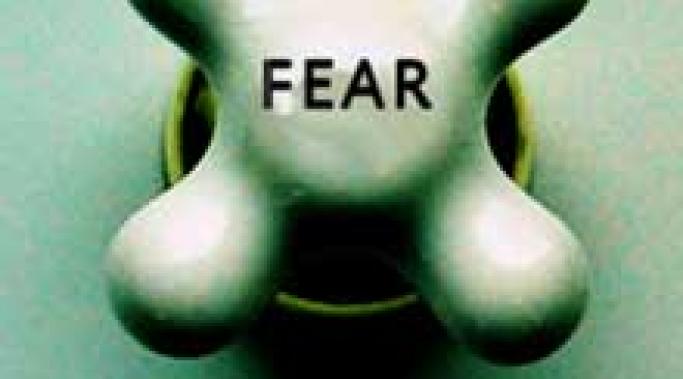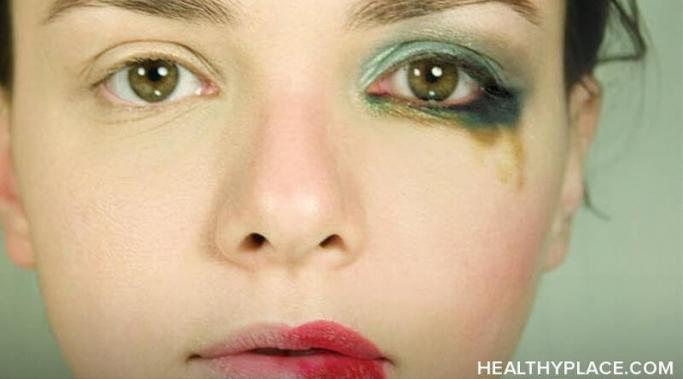It was four weeks after my first child was born when I experienced my first intrusive thought. In fact, the thought itself – a vision of myself placing my hand over his mouth – wasn’t unusual, as disturbing as it was. My reaction, however, was.
Mental Illness at Work
You’ve heard the term "binging," as in binge eating and binge drinking. It means excessively indulging in an activity, especially eating. Like binging on chocolate or going on a binge by drinking too much liquor. I have experience with both.
Let’s say you are a Mom, just diagnosed with breast cancer. After the shock wears off, you get on the phone and quickly connect to a network of knowledge given you by friends and friends of friends. You get names of doctors, surgeons, hospitals; you learn about treatment options. Friends and family visit; out-of-towners send cards and flowers. People you hardly know stop by to deliver meals. You are supported by friends and family; confident in your health care choices.
- Or:
Let’s say you are a mom, and your 19 year old daughter is asked to take a leave of absence from college.
How My Mental Health Problems Manifest as Fear
I was diagnosed with clinical depression in 2002 at the tender age of 19. Since then, my diagnosis has changed to bipolar disorder and a typical day for me is rarely free of some type of anxiety or depression. In the beginning, a number of fears came over me ranging from a fear of social situations to fear of failure and an overall fear that I would live the rest of my life fighting an endless battle trying simply to enjoy all of the wonderful things life has to offer. At the end of the day, I am strong – but so is my disorder.
Even though the direct costs of schizophrenia are high, the indirect costs related to disability and unemployment are even higher. Antipsychotics are the mainstay of treatment in schizophrenia and patients on medications for schizophrenia are 50% less likely to relapse compared to those on placebo. Medication nonadherence is when a patient doesn’t adhere to a treatment fully. Unfortunately, the rates of nonadherence to antipsychotic treatment is very high (between 40-60%) - even today with the new generation atypical antipsychotics. Objective measures of nonadherence show even higher rates (four to five fold) than clinician observation.
Misconceptions and myths about mental health therapy abound and sadly keep many people from getting the mental health help they want and need. For some of these mental health therapy myths and the reasons behind them, read ahead.
Although cyber bullying is not seen by many parents as being as serious as face-to-face bullying, it can be more dangerous as it creates the possibility of a wide-spread and more severe attack on an individual. The effect of bullying can be devastating and cyber bullying can result in peer group exclusion, victimization, and public humiliation of a child or adolescent.
Mothers need to be deeply aware of what they convey to their daughters through the attitudes they model about their own relationship to their bodies, their self-talk about how they look or "ought to" look, and how secure they seem in their choices. When a mother is battling low self-esteem or not even battling because she's unaware it's a root cause of frustration within her life, her daughter is likely to carry this burden as well.
For me, hypomania is the state before a manic episode. I experience happiness, creativity, energy and an absence of inhibitions. It’s pure bliss. And the part of your brain that worries about consequences turns a blind eye to your hypomanic adventures. But the downsides of hypomania and mania are just as awful as those of a drug addict who hits rock bottom- job loss, failed marriages, arrests and sometimes even death.
How many times has someone asked you in passing, “How are you?” And you’ve responded with the common, “Good. How are you?” - even when you’re not feeling your best? Our culture often doesn’t give us permission to share our frustrations, all the different kinds of stress, or our fears and anxiety. We often want to be perceived as superheroes who can handle anything that comes our way.
But, in reality, we are all dealing with something, whether we are moving to a new home, getting married, struggling with a project at work, or feeling overwhelmed by demands from friends and family. We often need a break from daily pressures and we rarely give ourselves permission to take one. The prescription: A mental health moment.









